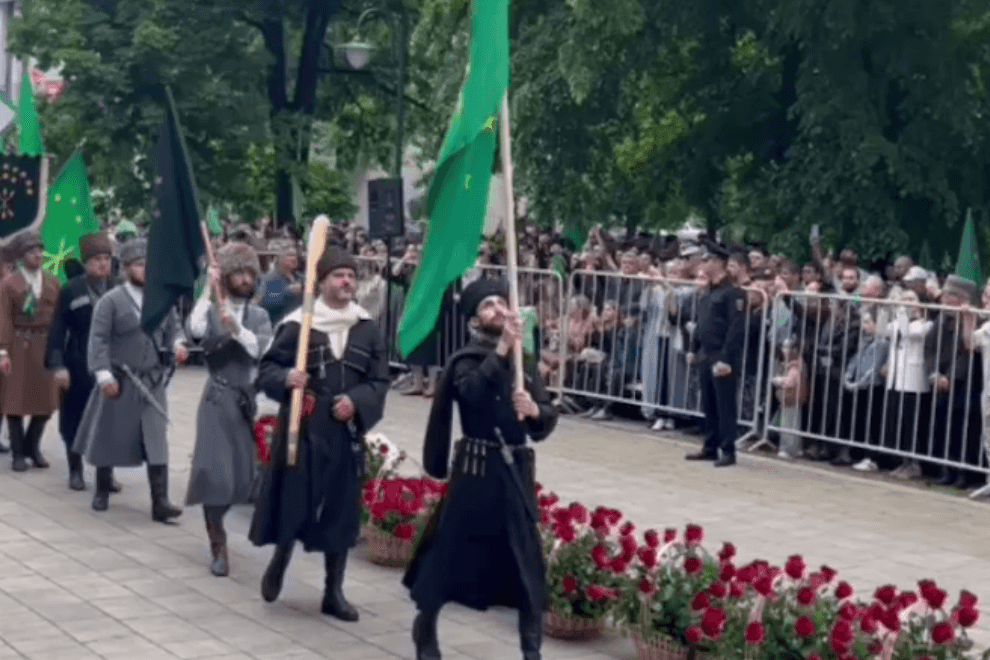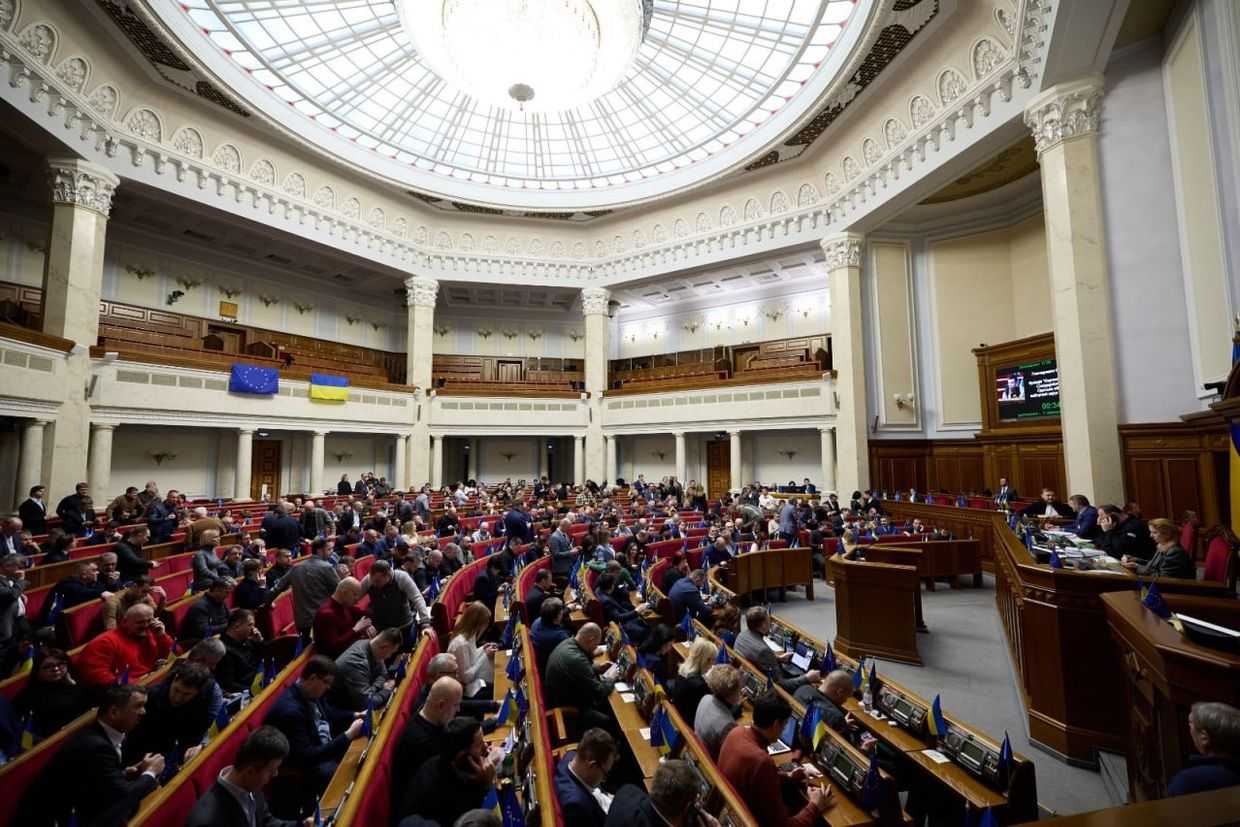
There was little movement on issues of Circassian rights in 2020, with the pandemic taking centre stage. But as Russian authorities continue to chip away at the rights and dignity of the country’s ethnic minorities, some activists remain hopeful for the future.
The main event in Circassian life in 2020, as in the lives of all other people on the planet, was the COVID-19 pandemic, asserts Anzdor Kabard, a prominent Circassian activist who lives in the United States.
‘The main event in Circassian life this year, alas, was also sad — Professor Bgazhnokov, an outstanding Circassian intellectual of our era, passed away. There is not yet any equal to him on the horizon. This is a huge loss.’
Barasbi Bgazhnokov was a prominent scholar who authored many scientific works on the history and ethnography of the peoples of the Caucasus.
‘It is difficult to name another person who had such a great influence on the self-consciousness of the Circassians’, agrees Aslan Beshto, the head of Circassian rights group the Kabardian Congress. ‘This is a loss with which nothing can be compared.’
‘The past year claimed the lives of several outstanding people, who certainly had and are influencing the Circassian issue.’
But for Murat Temirov, a Circassian activist and journalist from the Czech Republic, the coronavirus pandemic could not have affected the Circassian issue in any way, since it has been in oblivion for several years.
Activists see the Circassian question as a fight for their very identity and for the right to live together within their historical homeland. This includes the rights to use their language, the right to repatriation for the millions of Circassians across the world, and recognition of the 19th-century genocide which left them scattered in the first place.
‘On the eve of the 2014 Sochi Olympics, the Russian authorities made significant efforts to put a stop to the Circassian issue’, Temirov says. ‘They mainly used their agents among the “activists”, who marginalised the Circassian issue, reducing a political and international legal problem to the folklore and ethnographic level.’
‘In the Circassian environment, there are both direct agents of the special services and lured imitators, destroying any efforts by caring enthusiasts. So 2020 was no different from the previous 6–7 years, following the surge of attention to the Circassian issue caused by the Sochi Olympics which was scattered [by the security forces].’
But — Temirov concedes — there were certain events in 2020 that brought the issue to the fore again, including a controversial interview by Russia’s ambassador to Turkey.
‘A beautiful legend’
In February 2020, before the pandemic’s true magnitude had sunk in, Russian state-run media agency Sputnik published an interview with Aleksey Yerkhov, Russia’s Ambassador to Turkey.
Turkey hosts the largest Circassian population globally, with estimates numbering from hundreds of thousands to the millions, dwarfing even those in historic Circassia itself.
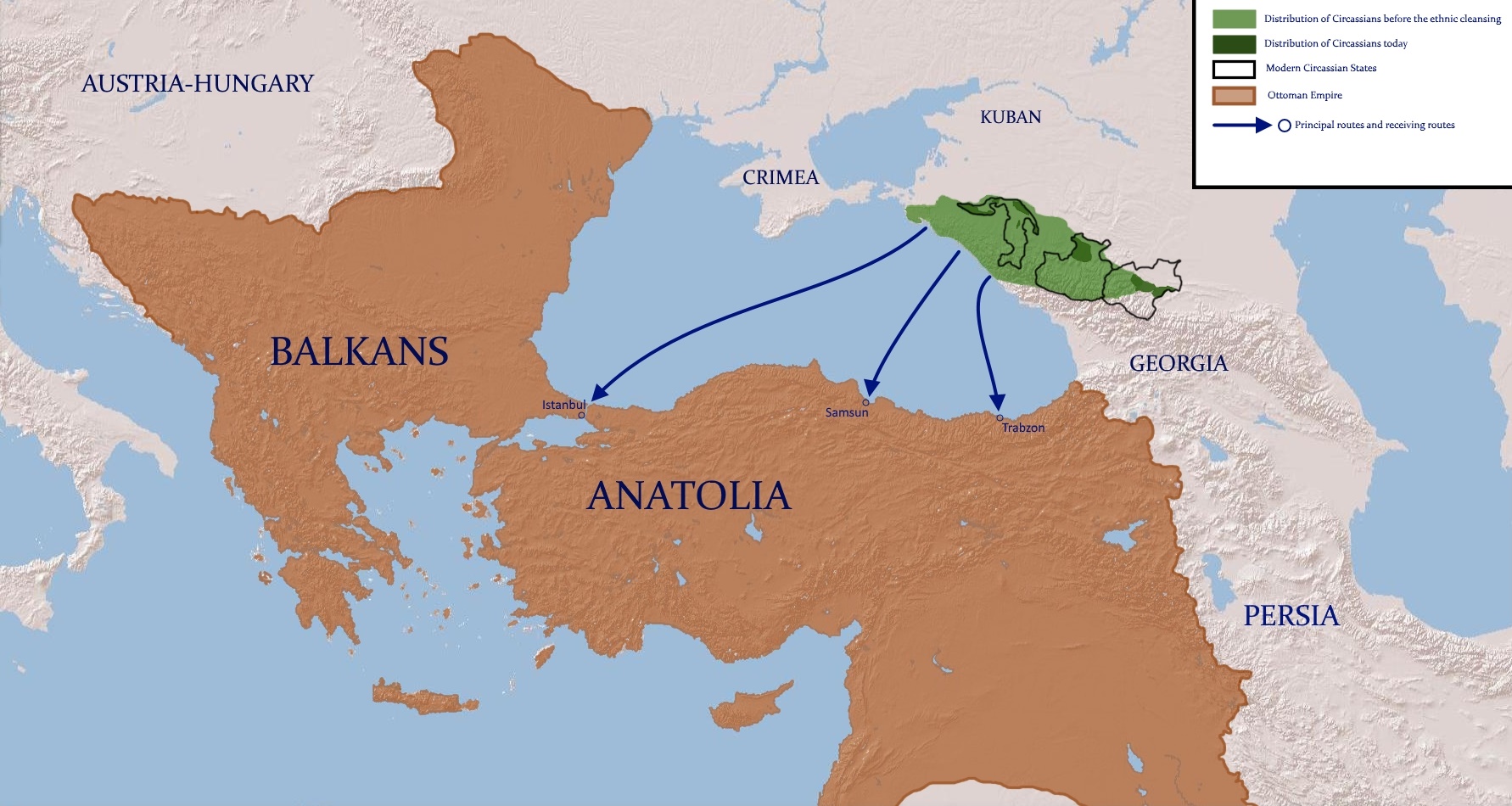
The interview would likely have gone without comment had this Russian official not allowed himself to belittle the Circassians’ tragic history, which aroused the outrage of numerous Circassian groups.
Yerkhov described the Circassians’ expulsion from their historical homeland by the Russian Empire as a ‘beautiful legend’. He claimed Circassian groups’ demonstrations and protests outside the Russian embassy in Istanbul stemmed from a ‘historically formed’ stereotype of an aggressive Russia.
Circassian groups, especially those in Turkey, responded to the interview with condemnations and protests.
[Read more: Russian ambassador to Turkey provokes anger over Circassian conquest comments]
Murat Temirov says the statements may have contributed to the revival of the Circassian issue.
‘Yerkhov did even more than all the so-called “activists”, who are direct or temporary agents of the special services.’
‘The subsequent reaction of the Turkish authorities also attracted media attention to the Circassian issue, so Yerkhov worked as a well-concealed Circassian agent’, Temirov quips.
The outcry led to a meeting between the leaders of the Federation of Circassian Associations in Turkey (Çerkes-Fed), and the Speaker of the Turkish Parliament.
The head of the Çerkes-Fed, Nusret Baş, says the group handed over a petition calling for Turkish recognition of the Circassian Genocide. ‘The case […] has been submitted to the Human Rights Commission of the Turkish Parliament and will be discussed there,’ Baş, tells OC Media.
Prominent Circassian social activist Andzor Kabard, who lives in the United States, says that while the ambassador’s words caused a strong reaction from Circassians around the globe, it’s timing, as the global pandemic was taking hold, significantly reduced the intensity of emotions felt, with the public’s attention soon switching to more pressing issues.
‘There was no resignation of the ambassador, which means that the pressure from the Circassian community was insufficient’, Kabard laments.
A monument to Genocide
But the ambassador’s comments were not the only insult felt by Circassians in 2020 at the hands of the Russian authorities.
Another wave of indignation swept through Circassian society after the installation in Adler, in Krasnodar Krai, of a monument ‘to the feat of Russian soldiers’ who conquered the western Caucasus in the 19th century, driving out or killing the majority of the region’s native population.
Circassian activists accused the authorities of imperialism because of the monument’s installation, and it was soon dismantled.
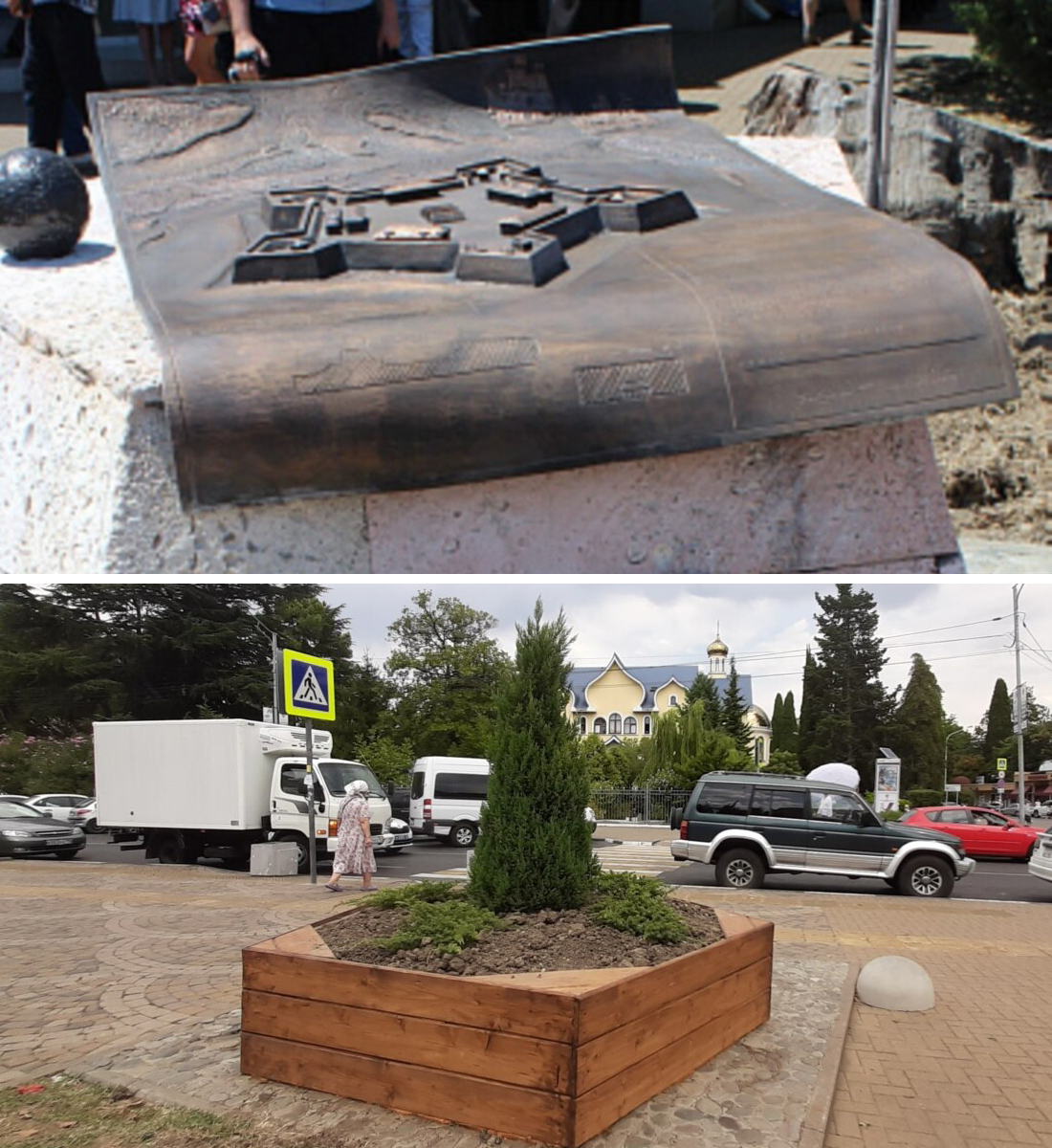
Murat Temirov says the incident once again demonstrated to the Circassians the place assigned to them by the authorities in the new Russia.
‘In fact, the more such excesses there are, the sooner the national consciousness will awaken among the Circassians, who are still loyal to the current regime, but gradually realising that it does not recognise them as full-fledged citizens of the country.’
Nusret Baş says it was ‘alarming’ that the monument ‘to the generals who were guilty of the genocide of the Circassians’ was erected in a region where Circassians still live.
He also noted that several prominent Russians had reacted with offensive statements about Circassians following the dismantling of the monument. ‘Their statements are unacceptable to us’, he says.
One such prominent public figure was the Russian designer Artemy Lebedev.
This led to a campaign, though unsuccessful, to have Lebedev stripped of the Medal of the Order of Merit to the Fatherland, which he was awarded in August by President Putin.
Andzor Kabard says the focus on Lebedev was misplaced. ‘The opinion of some Russian order-bearing Internet freak is not worth attention’, he says.
‘There are more prominent figures in Russia [making offensive statements] — Deputy Speaker of Parliament [Vladimir] Zhirinovsky called on national television for the genocide of all North Caucasian peoples, [then Deputy Prime Minister Dmitry Rogozin] made openly insulting remarks about them, and [then Deputy Prime Minister Dmitry Kozak, now the President’s Deputy chief of staff] would try to speak in the same spirit about the Jewish Holocaust, as he once dared about the Circassian genocide.’
‘Who cares about some blogger with coloured hair when these people haven’t been held accountable yet? Definitely not me.’
‘Like the Native Americans on the reservations’
Despite the pandemic, Russian authorities continued to push through legal changes in 2020 objected to by many of the country’s ethnic minorities, including Circassian groups.
President Putin made it easier for ethnic Russians abroad to gain Russian citizenship, now being able to do so without renouncing their citizenship of other countries.
But the law on compatriots does not apply to foreign-born ethnic Circassians, which has been a point of contention for years.
In February, the State Duma Committee on State Building supported an amendment to the Constitution that would define Russian as the language of ‘a state-forming people, a member of the multinational union of equal peoples of the Russian Federation’.
The initiative was sharply condemned by Circassian social activists, who saw it as a continuation of a policy that previously made the teaching of minority languages optional.
The new amendments satisfied only the International Circassian Association, a group known for its pro-government positions. The group’s President, Khauti Sokhrokov, noted that the wording of the amendment was ‘absolutely verified, balanced, focused on the importance of the Russian language as a state-forming language’.
[Read more: Unambitious state-backed Circassian groups hide a growing nationalism in young Circassians]
Several Circassian groups filed a complaint about the amendments with the UN Human Rights Commission.
‘It was important for us that the complaint that we submitted to the UN Commission on Human Rights in connection with the racist statements in the Russian Constitution was accepted and considered’, says Çerkes-Fed head Nusret Baş.
[Read from Nusret Baş: Opinion | In Russia, calling yourself a Circassian is always a political stance]
‘New constitutional measures in Russia have paved the way for intensifying attacks on the Circassian republics — against their native language and culture’, he continues.
As Circassian activist Murat Temirov puts it, indigenous languages in Russia are ‘denied any existence in public space, marginalised and turned into a household instrument at best.’
[Read more: Vulnerable and divided: the uncertain state of the Circassian language]
‘Thus, the indigenous peoples of the country are recognised as second-class citizens, like the native Americans on the reservations.’
‘The same applies to the relegation of the status of republics from full-fledged subjects to secondary regions with the prospect of complete abolition, as government speakers like Zhirinovsky have repeatedly expressed.’
This is a prospect Nusret Baş also warns of. ‘We can say that federalism is over’, he says.
‘The institutions of the republics bearing the sign of the state, albeit symbolically, are being abolished one after another. The abolition of constitutional courts in the republics is the latest example of this.’
‘Step by step, they are advancing towards their goal — the abolition of the national republics.’
Bringing Circassian activism into the 21st century
The pandemic has reshaped social interactions globally, and the Circassian community has been no exception.
Çerkes-Fed’s Nusret Baş says this has brought a number of important changes including in the organisation of civil society and the interaction between Circassians in the diaspora and in their homeland.
‘We can consider it important to expand communication in the Circassian community around the world through social networks’, Baş says.
‘Many face-to-face meetings did not take place this year, as travel to and from home was kept to a minimum. However, the communication of the Circassians is still continuing with publications on social networks, which is very important.’
As the head of the Kabardian Congress, Aslan Beshto, points out, 2020 saw a departure from conventional street events to a transition online.
Many Circassians had to celebrate the Day of the Circassian Flag, which in previous years was accompanied by large street processions and motor rallies, in social isolation. The same was true of 21 May, which in 2020 marked 156 years since the end of the Caucasian war, a day of tragedy for Circassians.
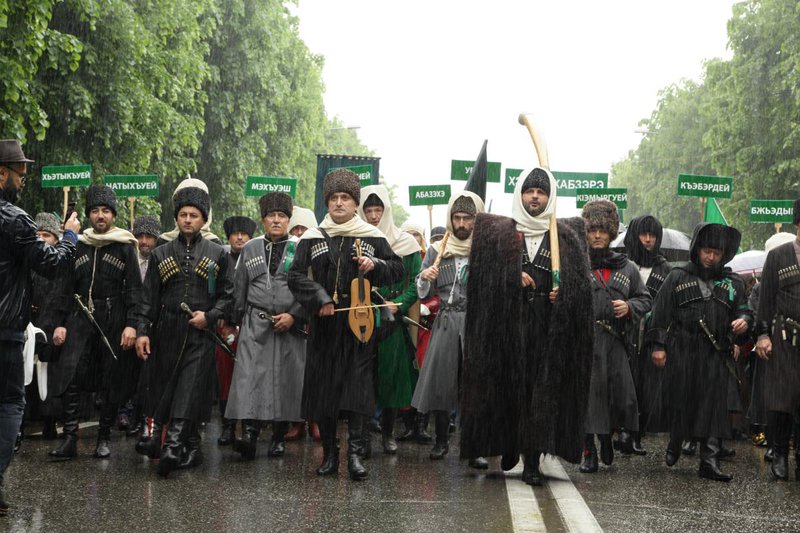
While in Turkey, memorial events were held in several cities throughout the country, in the North Caucasus, such actions mainly took place online.
‘New technologies made it possible to see how outdated the old method of conducting public affairs was and how much more confident and courageous Circassian organisations of the new kind feel’, Beshto says.
‘This experience allows us to confidently assert that the time of public organisations of the post-Soviet kind has irrevocably gone, and completely different groups are appearing on the scene.’
According to Beshto, these new groups typically have a far less pronounced leadership structure and are instead united by a common idea and common goal.
‘All this, of course, will have a very positive impact on the further development of the Circassian movement after the pandemic.’
